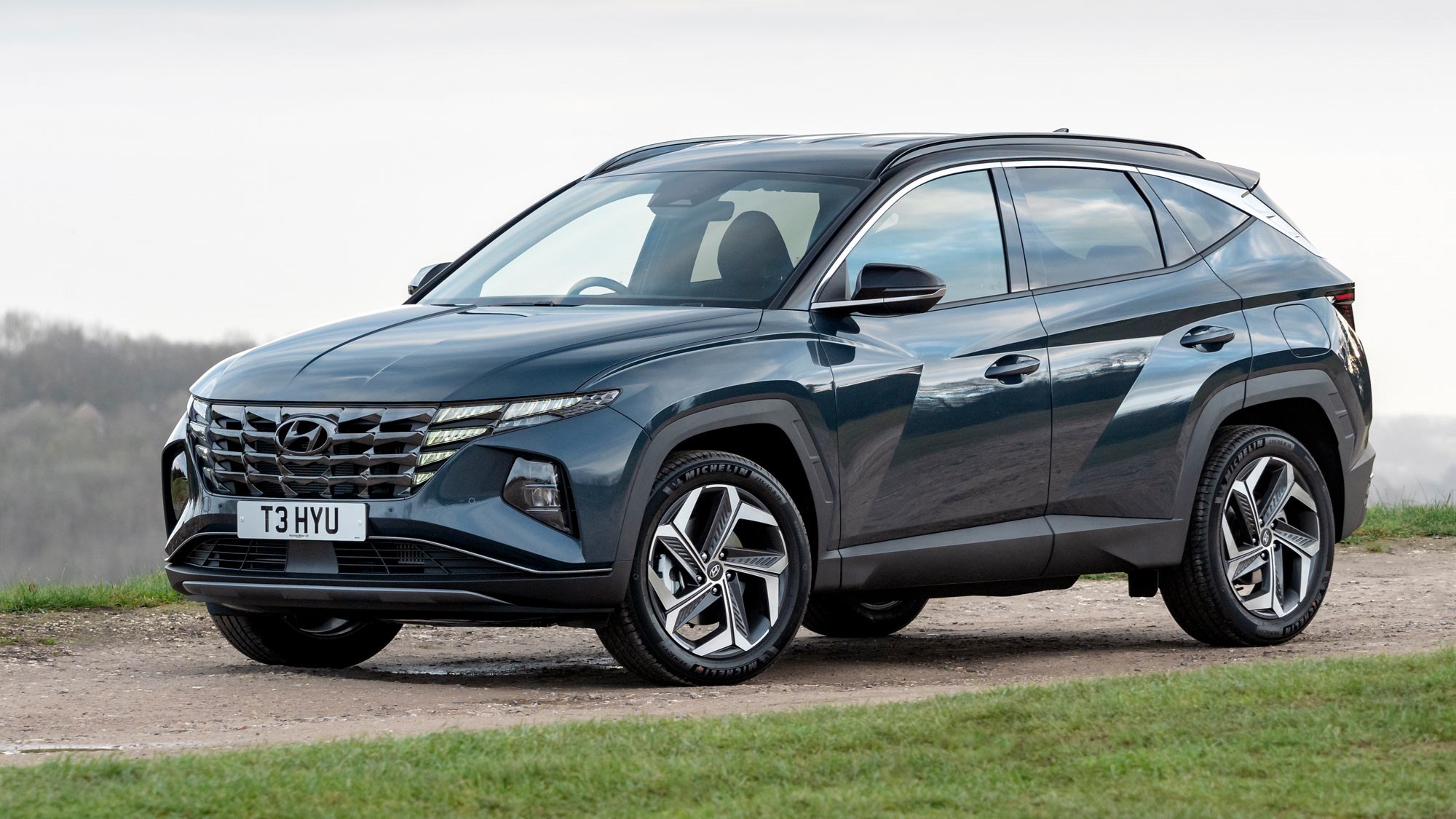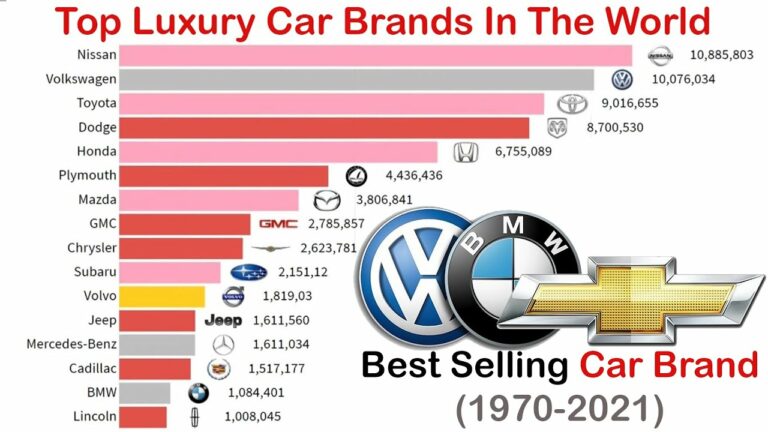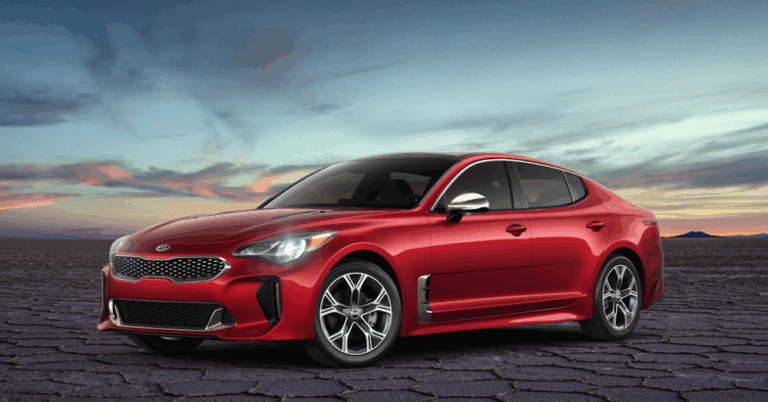Brand New Hybrid Cars: Driving Towards a Greener, More Efficient Future
Brand New Hybrid Cars: Driving Towards a Greener, More Efficient Future cars.truckstrend.com
The automotive landscape is undergoing a profound transformation, and at the heart of this revolution lies the hybrid car. No longer a niche curiosity, brand new hybrid cars represent a compelling blend of innovation, efficiency, and performance, offering a practical bridge between traditional gasoline vehicles and the fully electric future. These aren’t the rudimentary hybrids of yesteryear; today’s models are sophisticated machines, meticulously engineered to deliver superior fuel economy, reduced emissions, and an increasingly refined driving experience.
A hybrid car, at its core, combines a conventional internal combustion engine (ICE) with an electric motor and a battery pack. This ingenious synergy allows the vehicle to optimize power delivery, recover energy typically lost during braking (regenerative braking), and often operate on electric power alone for short distances. The "brand new" aspect highlights the continuous advancements in this technology – from more compact and powerful batteries to intelligent power management systems and a wider array of body styles and performance capabilities, making hybrids a mainstream and highly attractive option for a diverse range of drivers. Their growing importance stems from a dual promise: easing the burden on our wallets at the fuel pump and significantly reducing our environmental footprint, all without the range anxiety often associated with pure electric vehicles.
Brand New Hybrid Cars: Driving Towards a Greener, More Efficient Future
The Evolution of Hybrid Technology: From Niche to Mainstream Marvel
The journey of the hybrid car from concept to contemporary staple is a testament to relentless innovation. While the earliest prototypes date back over a century, it was the late 1990s and early 2000s, spearheaded by models like the Toyota Prius, that truly brought hybrids into public consciousness. These early pioneers focused almost exclusively on maximizing fuel efficiency, often at the expense of performance or aesthetic appeal.
Fast forward to today, and the picture is dramatically different. Brand new hybrid cars are no longer just about getting excellent MPG; they offer a holistic package. Modern hybrids boast:
- More Sophisticated Power Trains: Advanced control units seamlessly switch between electric, gasoline, or combined power, often imperceptibly to the driver.
- Improved Battery Technology: Lighter, more energy-dense lithium-ion batteries allow for greater electric-only range and better power delivery.
- Enhanced Performance: Electric motors provide instant torque, leading to surprisingly brisk acceleration and a quieter, smoother ride, especially at lower speeds. Many performance-oriented vehicles now integrate hybrid systems for an extra boost.
- Wider Range of Models: From compact sedans and family SUVs to luxury vehicles and even trucks, hybrid powertrains are now available across virtually every vehicle segment, catering to diverse needs and preferences.

This evolution signifies that brand new hybrid cars are no longer a compromise but a highly competitive and often superior choice, blending the best attributes of both gasoline and electric propulsion.
Understanding the Types of Brand New Hybrid Cars
The term "hybrid" is a broad umbrella. To make an informed decision, it’s crucial to understand the different classifications:
-
Mild Hybrids (MHEV): These systems use a small electric motor and battery, primarily to assist the gasoline engine, power accessories, and enable features like advanced start-stop systems. They offer modest fuel economy improvements and are often found in vehicles where the primary goal isn’t maximum efficiency but a slight boost in performance and refinement. The electric motor cannot power the car independently.
-
Full Hybrids (FHEV): Also known as "parallel hybrids" or "self-charging hybrids," these are the most common type. They feature a larger electric motor and battery pack than mild hybrids, allowing the car to run on electric power alone for short distances and at low speeds (e.g., in stop-and-go traffic or parking lots). The gasoline engine recharges the battery, so external charging isn’t required. They offer significant fuel savings, especially in urban driving.
-
Plug-in Hybrids (PHEV): Representing the closest step to a pure electric vehicle, PHEVs have a much larger battery pack that can be charged by plugging into an external power source (like a home outlet or public charging station). They offer a substantial all-electric driving range (typically 20-50 miles or more) before the gasoline engine kicks in. This allows many drivers to complete their daily commutes solely on electricity, while still having the gasoline engine for longer trips without range anxiety.
-
Series Hybrids: In this less common configuration, the gasoline engine acts solely as a generator to produce electricity, which then powers the electric motor(s) that drive the wheels. The engine never directly powers the wheels. This often results in a smoother, more EV-like driving experience.
-
Series-Parallel Hybrids (Power-Split): Many full hybrids and PHEVs utilize a power-split device that allows both the electric motor and gasoline engine to power the wheels directly, or for the engine to charge the battery, or a combination thereof. This system provides maximum flexibility and efficiency across various driving conditions.
Key Benefits of Owning a Brand New Hybrid Car
The allure of brand new hybrid cars extends beyond their technological sophistication, offering tangible advantages for drivers:
- Exceptional Fuel Efficiency: This remains the primary draw. Hybrids, especially full hybrids and PHEVs, significantly reduce trips to the gas station, particularly in city driving where regenerative braking and electric-only operation shine.
- Reduced Emissions: By consuming less fossil fuel and often operating in zero-emission electric mode, hybrids contribute to cleaner air and a smaller carbon footprint, aligning with global environmental goals.
- Quiet and Smooth Operation: The ability to run on electric power means incredibly quiet starts and low-speed driving. The seamless transition between power sources also contributes to a refined and comfortable ride.
- Government Incentives and Tax Credits: Depending on your region or country, purchasing a new hybrid (especially a PHEV) may qualify you for tax credits, rebates, or other incentives designed to encourage adoption of greener vehicles.
- Strong Resale Value: Hybrids often retain their value well due to their desirability and proven reliability.
- Instant Torque and Responsive Driving: Electric motors deliver immediate torque, leading to quick acceleration from a standstill, which can make merging onto highways or navigating city traffic feel more effortless.
- No Range Anxiety (Especially for PHEVs): Unlike pure EVs, a hybrid always has a gasoline engine to fall back on, eliminating concerns about running out of charge on long journeys or in areas with limited charging infrastructure.
Important Considerations Before Buying Your Hybrid
While the benefits are compelling, a few key considerations will help you choose the right brand new hybrid car for your needs:
- Driving Habits: If most of your driving is on the highway at consistent speeds, the fuel efficiency gains from a hybrid might be less pronounced compared to city driving. PHEVs are ideal if you have a short commute and can charge regularly.
- Initial Cost vs. Long-term Savings: Hybrids often have a higher upfront purchase price than their conventional gasoline counterparts. Calculate whether the fuel savings and potential incentives will offset this over your ownership period.
- Charging Infrastructure (for PHEVs): If considering a PHEV, assess your ability to charge at home (Level 1 120V outlet or Level 2 240V charger) or access public charging stations. Regular charging is key to maximizing PHEV benefits.
- Battery Life and Replacement: Modern hybrid batteries are designed to last the life of the vehicle, often coming with warranties of 8-10 years or 100,000-150,000 miles. While eventual replacement is possible, it’s less common and less costly than historical perceptions suggest.
- Maintenance: While generally similar to gasoline cars, hybrids have specific components (like the electric motor, inverter, and battery cooling system) that require specialized knowledge. However, regenerative braking can reduce wear on conventional brake pads.
Navigating the Market: Tips for Choosing Your Brand New Hybrid
With so many excellent options available, selecting the perfect hybrid can feel daunting. Follow these tips for a smooth decision-making process:
- Assess Your Needs: How far do you drive daily? What’s your budget? Do you need cargo space, AWD, or specific performance attributes?
- Research Hybrid Types: Based on your driving habits, decide if a mild, full, or plug-in hybrid makes the most sense.
- Compare Models: Look at different manufacturers and models within your chosen hybrid type. Read reviews, compare specifications (MPG, EV range, cargo space, safety features), and check warranty information.
- Test Drive Thoroughly: Don’t just take a quick spin around the block. Test drive the car in conditions similar to your daily commute – city traffic, highway speeds, hills. Pay attention to acceleration, braking (especially the feel of regenerative braking), and the transition between power sources.
- Consider Total Cost of Ownership: Factor in not just the purchase price, but also estimated fuel costs, insurance, maintenance, and potential resale value.
- Explore Incentives: Check local, state, and federal incentives for hybrid and plug-in hybrid vehicles.
Practical Advice and Actionable Insights
Once you’re the proud owner of a brand new hybrid, here’s how to maximize its benefits:
- Maximize Fuel Efficiency:
- Gentle Acceleration and Braking: Smooth inputs are key. Accelerate gradually and utilize regenerative braking by easing off the accelerator early, allowing the car to slow down and recharge the battery.
- Utilize EV Mode (Full Hybrids/PHEVs): Drive within the speed limits that allow the car to stay in electric mode as much as possible, especially in city driving.
- Maintain Tire Pressure: Properly inflated tires significantly impact fuel economy.
- Avoid Excessive Idling: Many hybrids shut off their engine when stopped, but avoid unnecessary idling.
- Optimizing Charging Habits (PHEVs):
- Charge Regularly: Plug in your PHEV whenever possible, even for short periods. The more you drive on electricity, the more you save.
- Utilize Off-Peak Charging: If your electricity provider offers different rates, charge during off-peak hours to save money.
- Consider a Level 2 Charger: For faster charging at home, a 240V Level 2 charger is a worthwhile investment.
- Regular Maintenance: Follow the manufacturer’s recommended maintenance schedule. While some components differ, basic maintenance like oil changes and tire rotations remain crucial.
Brand New Hybrid Cars: Sample Price & Specification Table
Please note: Prices are estimated Starting MSRP (Manufacturer’s Suggested Retail Price) in USD and can vary significantly based on trim level, options, region, and incentives. Fuel economy (MPG) and EV range are also estimates and can vary based on driving conditions.
| Model | Type | Estimated Starting MSRP (USD) | Est. Combined MPG (or MPGe) | Est. EV Range (PHEV only) | Key Features / Notes |
|---|---|---|---|---|---|
| Toyota Camry Hybrid | Full Hybrid | $29,000 | 47-52 MPG | N/A | Reliable, spacious sedan, excellent fuel economy. |
| Hyundai Elantra Hybrid | Full Hybrid | $26,000 | 50-54 MPG | N/A | Stylish, fuel-efficient compact, good tech. |
| Honda CR-V Hybrid | Full Hybrid | $34,000 | 37-40 MPG | N/A | Popular compact SUV, AWD available, practical. |
| Kia Sportage Hybrid | Full Hybrid | $29,000 | 39-43 MPG | N/A | Bold design, spacious interior, strong warranty. |
| Ford Escape Plug-in Hybrid | Plug-in Hybrid | $40,000 | 105 MPGe / 40 MPG Combined | 37 miles | Versatile compact SUV, good all-electric range. |
| Hyundai Tucson Plug-in Hybrid | Plug-in Hybrid | $38,000 | 80 MPGe / 35 MPG Combined | 33 miles | Modern design, comfortable ride, AWD standard. |
| Toyota RAV4 Prime | Plug-in Hybrid | $43,000 | 94 MPGe / 38 MPG Combined | 42 miles | Powerful, impressive EV range, popular SUV. |
| Lexus NX 350h | Full Hybrid | $45,000 | 37-39 MPG | N/A | Luxury compact SUV, refined interior, AWD. |
| BMW 330e | Plug-in Hybrid | $46,000 | 75 MPGe / 28 MPG Combined | 22 miles | Sporty sedan, premium feel, engaging drive. |
Frequently Asked Questions (FAQ) about Brand New Hybrid Cars
Q1: Are brand new hybrid cars reliable?
A1: Yes, modern hybrid cars are highly reliable. Manufacturers like Toyota and Honda have decades of experience with hybrid technology, and their systems are proven. The battery packs are designed to last the lifespan of the vehicle, often with long warranties.
Q2: How long do hybrid batteries last?
A2: Most hybrid batteries are warrantied for 8 years/100,000 miles or even 10 years/150,000 miles in some states (like California). Many owners report their batteries lasting well beyond these figures, often for 150,000-200,000 miles or more.
Q3: Is hybrid maintenance more expensive than a regular car?
A3: Generally, no. Routine maintenance costs are often similar to or even less than conventional gasoline cars. Regenerative braking reduces wear on brake pads, and the electric motor has fewer moving parts than a gasoline engine. While hybrid-specific components might require specialized technicians, overall costs are usually comparable.
Q4: Do all hybrid cars need to be plugged in?
A4: No. Only Plug-in Hybrid Electric Vehicles (PHEVs) need to be plugged in to charge their larger battery packs for extended electric-only driving. Mild Hybrids (MHEVs) and Full Hybrids (FHEVs) are "self-charging" and do not require external charging; their batteries are recharged by the gasoline engine and regenerative braking.
Q5: What’s the main difference between a hybrid car and a pure EV (Electric Vehicle)?
A5: A hybrid car combines a gasoline engine with an electric motor and battery. A pure EV runs solely on electricity, with no gasoline engine. Hybrids offer a bridge, providing fuel efficiency and lower emissions while still using gasoline, whereas EVs require charging infrastructure and have no tailpipe emissions. PHEVs offer a blend of both, with a significant electric-only range.
Q6: Are hybrids good for long road trips?
A6: Absolutely. Full hybrids seamlessly use their gasoline engine for highway driving, offering excellent combined fuel economy. Plug-in hybrids (PHEVs) are also ideal, as you can utilize their electric range for daily commutes and rely on the gasoline engine for longer journeys without worrying about charging stops.
Conclusion: A Smart Choice for Today and Tomorrow
Brand new hybrid cars stand as a testament to automotive ingenuity, offering a compelling blend of efficiency, performance, and environmental responsibility. They represent a mature and highly refined technology that caters to a wide spectrum of drivers, from those seeking maximum fuel savings to those desiring a greener commute without the commitment of a pure electric vehicle.
By seamlessly integrating gasoline and electric power, today’s hybrids provide a quiet, smooth, and powerful driving experience while significantly reducing trips to the pump and contributing to cleaner air. As the world transitions towards more sustainable transportation, brand new hybrid cars are not just a temporary solution but a smart, practical, and increasingly sophisticated choice that delivers real-world benefits, making them a cornerstone of the modern automotive landscape. They truly offer the best of both worlds, driving us forward into a more efficient and environmentally conscious future.




